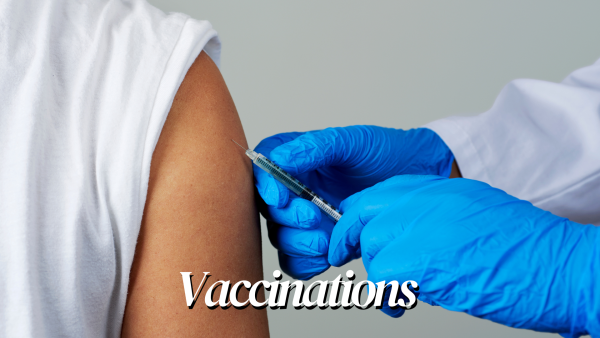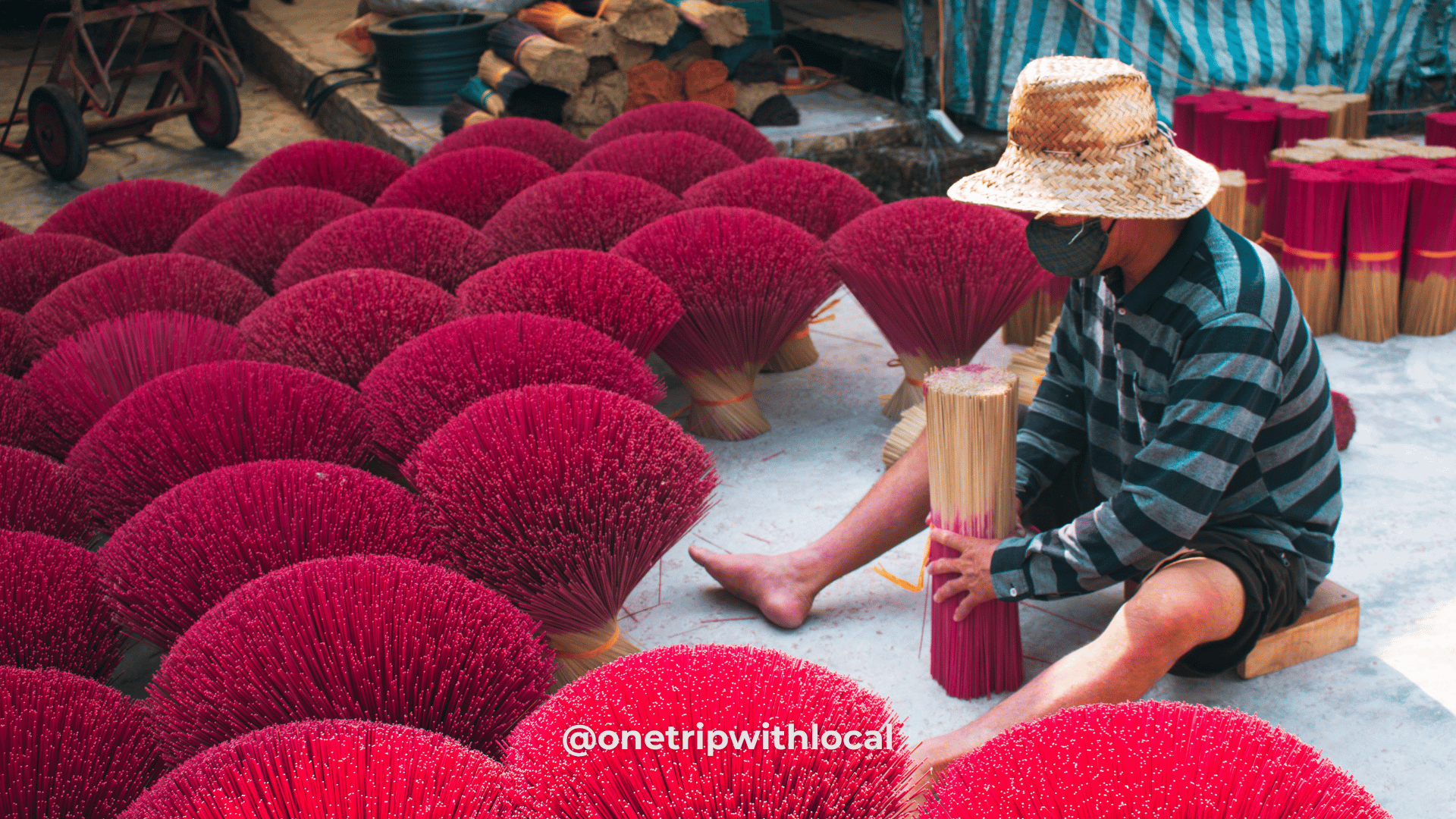Common Health Risks in Vietnam and How to Avoid Thema
Vietnam has specific health risks, but many can be managed with simple precautions. Here are key tips:
- Food Safety: Street food is an integral part of Vietnamese culture, but it’s best to choose freshly cooked items and avoid uncooked dishes (like salads) from vendors. Opt for busy stalls with high turnover, as they’re more likely to have fresher ingredients. When in doubt, eat at reputable restaurants and be cautious with raw or undercooked foods.
- Water Quality: Tap water in Vietnam is generally not potable. Most homes and accommodations use filtered water, but if unsure, ask your host or accommodation provider about water quality.
- Air Pollution: Cities such as Hanoi and Ho Chi Minh City experience varying air quality, especially during dry seasons. Check daily air quality levels using local apps and wear a mask on high-pollution days. Limit outdoor activities on particularly bad days to protect your respiratory health.
Understanding the Healthcare System in Vietnam

Vietnam’s healthcare system comprises both public and private sectors, offering varying levels of service quality. Major cities like Hanoi and Ho Chi Minh City boast well-equipped private and public hospitals with trained healthcare professionals. However, in rural areas, healthcare facilities may be limited, making access to certain medical services challenging.
Access to Care: Most foreigners prefer private hospitals and clinics due to their English-speaking staff and higher standards of care. These facilities often cater to international patients and may offer familiar services. Public hospitals are more affordable but may have longer wait times and limited English-speaking staff.
Health Insurance: It’s highly recommended to have comprehensive health insurance with international coverage, especially if you plan on living in or frequently visiting Vietnam. Some policies even cover medical evacuation, which can be invaluable if you need specialized care unavailable locally. Ensure your insurance policy meets your needs to avoid out-of-pocket expenses.
Vaccinations and Preventive Health

Preventive care is essential, particularly for extended stays or travel to rural areas. Ensure you’re up-to-date with vaccinations recommended by health authorities, including:
- Hepatitis A and B
- Typhoid
- Japanese Encephalitis (especially if you’ll be spending time in rural areas)
- Rabies (for those in contact with animals or visiting remote areas)
General Health Tips: Long-term residents should prioritize routine health check-ups and stay current with preventive vaccinations and screenings. Being proactive can help you maintain good health and avoid potential complications.
Travel Vaccinations for Vietnam: https://www.traveldoctor.com.au/destinations/vietnam
Road Safety Tips
Road conditions and traffic patterns in Vietnam can be overwhelming for newcomers. Motorbikes dominate the streets, and traffic rules may seem chaotic. Here are tips to stay safe:
- Traffic Conditions: Traffic can be dense, particularly in urban centers, and crossing streets requires vigilance. Vehicles may not stop for pedestrians, so cross cautiously and confidently. Always be alert to motorbikes when walking, as sidewalks are often used for both pedestrians and riders.
- Safe Travel: Wearing a helmet is mandatory for motorbike riders, including passengers. If you plan to drive, consider taking a motorbike training course, as road conditions may differ significantly from Western countries. Drive defensively and stay aware of other road users at all times.
- Public Transportation: Vietnam has an affordable public transportation system, including buses and trains. Ride-sharing services like Grab are also available and can be a safe alternative to renting a motorbike, especially if you’re unfamiliar with the roads.
This video from @foXnoMad shows you how to cross the road in Vietnam: https://youtu.be/vdPNl0_fzlg?si=MmN2Qy9rIgVYq0JP
If you want to drive a scooter, @Itchy Feet tells you how: https://youtu.be/lwH2XtH9LIc?si=rfVVq19Mql5p2ihN
Natural Disaster Preparedness

Vietnam is prone to certain natural disasters, including typhoons, floods, and occasional landslides, particularly during the rainy season from May to October. Being prepared can make a significant difference:
- Typhoons and Floods: These are more common in coastal areas and northern Vietnam. Monitor local weather reports during the rainy season, as heavy rain can lead to flooding, especially in low-lying areas.
- Precautionary Steps: If you’re in an area prone to natural disasters, familiarize yourself with evacuation routes, keep a basic emergency kit with essentials, and stay informed about weather updates via reliable sources.
Emergency Contacts and Resources

In an emergency, knowing whom to call and where to go is essential. Here are important contacts:
- Emergency Numbers: In Vietnam, reach the police at 113, fire services at 114, and ambulances at 115.
- Hospitals and Clinics Directory: For medical emergencies, head to a reputable hospital. Well-known hospitals in Ho Chi Minh City include FV Hospital and Vinmec International Hospital. In Hanoi, consider Vinmec or Hanoi French Hospital. These hospitals have English-speaking staff and are accustomed to treating international patients.
Conclusion
By taking these simple health and safety precautions, you can make the most of your time in Vietnam and have a truly memorable experience. Staying healthy and safe allows you to fully explore and appreciate Vietnam’s unique landscapes, foods, and cultures.
Whether you’re visiting for a few weeks or planning a long-term stay, remember to stay informed, stay prepared, and embrace the beauty of this country with a respectful and mindful approach. Enjoy your adventure in Vietnam!
Frequently asked questions
Q: Is it safe to drink tap water in Vietnam?
A: No, tap water in Vietnam is not safe to drink directly. It’s recommended to buy drinking water from supermarkets or convenience stores. While tap water is fine for washing and cooking, it may contain harmful bacteria or contaminants.
Q: What are some common scams to be aware of in Vietnam?
A: Some common scams in Vietnam, particularly in tourist areas, include:
– Taxi fare scams – always check the fare with the driver beforehand or use ride-hailing apps like Grab
– Free “gift” scams – be cautious of accepting free items from strangers, as they may demand payment later
– Pickpocketing in crowded areas – be aware of your belongings, especially in busy places
Q: What precautions should I take for my personal safety
A: To ensure your safety:
– Be cautious in crowded areas and keep your belongings secure
– Use bags with proper zips and avoid keeping valuables in outer pockets
– Carry backpacks at your side with the zip at the front in crowded areas
Q: What should I do if I become a victim of theft?
A: If you experience theft, report the case to the local police station. However, be aware that this process may take a considerable amount of time.
Q: Are there any specific health precautions I should take?
A: While the search results don’t provide specific health precautions, it’s generally advisable to:
– Use hand sanitizer, especially when trying local foods
– Bring mosquito repellent, particularly during the rainy season and when visiting mountainous areas
Q: When is the best time to visit Vietnam, considering health and comfort?
A: It’s best to avoid visiting during the summer months, as the weather can be extremely hot and humid, sometimes reaching 42 degrees Celsius. Also, try to avoid the Tet holiday (Vietnamese New Year) as most businesses are closed during this time.

